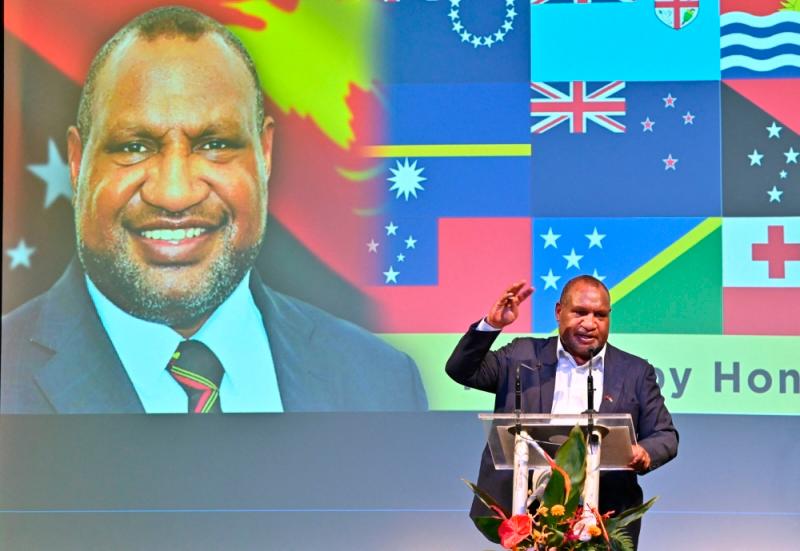PORT MORESBY: Papua New Guinea will sign a defence pact with the United States today, giving US forces access to its airfields and ports as Washington vies with China’s growing footprint in the Pacific region.
In a sign of the intensifying rivalry over the South Pacific, US Secretary of State Antony Blinken was not alone in representing major powers in Port Moresby, where the deal is to be signed.
Indian Prime Minister Narendra Modi flew into town just hours before him on the eve of a summit Monday with 14 South Pacific island states, asserting his nation’s role as a regional power in the face of China’s rise.
“We share your belief in multilateralism. We support a free, open, and inclusive Indo-Pacific. We respect the sovereignty and integrity of all countries,” Modi told Pacific leaders in opening remarks.
Blinken will meet those same South Pacific leaders as the United States aims to counter China’s expanding economic, political and military presence.
But by signing the security deal with PNG Prime Minister James Marape, Blinken will also expand the US military’s capacity to deploy in the region.
Beijing has snapped up mines and ports across the Pacific and last year inked a secretive security pact with the Solomon Islands that allows China to deploy troops to the country.
Student protests
The United States fears that a Chinese military foothold in the South Pacific could outflank its facilities on Guam, and make the defence of Taiwan more complicated in the event of a Chinese invasion.
The State Department said the pact with PNG would “enhance security cooperation and further strengthen our bilateral relationship, improve the capacity of the PNG Defence Force, and increase stability and security in the region”.
“Port Moresby is no longer the sleepy diplomatic outpost it once was,” said Gordon Peake, a senior adviser for the Pacific Islands at the United States Institute of Peace.
“While China might not be mentioned anywhere in the document, it’s an important subtext in this story of deepening US-PNG relations.”
Marape last week said the deal would offer Washington movement in the country’s waters in return for access to US satellite surveillance to battle “illegal activities on the high sea”.
The deal would not prevent him from signing similar agreements with other nations, including China, he said.
China on Friday said it opposes the “introduction of any geopolitical games into the Pacific Island country region,” without specifically referring the deal or Blinken’s visit.
“China has no objection to normal exchanges and cooperation between relevant parties and Pacific Island countries,” foreign ministry spokesperson Wang Wenbin said at a daily briefing.
The agreement has also prompted student protests at several universities, PNG’s biggest newspaper the Post Courier reported, over fears it gives US forces too much autonomy at some of the country’s key entry points.
Bomb squad cars
Security was high in the capital on Monday, with roads blocked and bomb squad cars stationed around its downtown beach area close to where the leaders were meeting. Officers were also patrolling nearby waters on speedboats and jet skis.
Blinken replaced Joe Biden at the summit after the US president cancelled the trip to take part in debt ceiling talks in Washington.
After visiting a US-funded HIV/AIDS clinic, Blinken was to hold bilateral talks with both New Zealand Prime Minister Chris Hipkins and Marape before inking the defence agreement.
On top of the deal, the US pledged to PNG $45 million in funding to tackle organised crime, climate change and HIV/AIDS, as well as protective equipment for its military, the State Department said.
Commander of the US Indo-Pacific Command, Admiral John Aquino, also visited a barracks in Oro Province on Monday where he was met by a military parade, the Courier reported. — AFP









